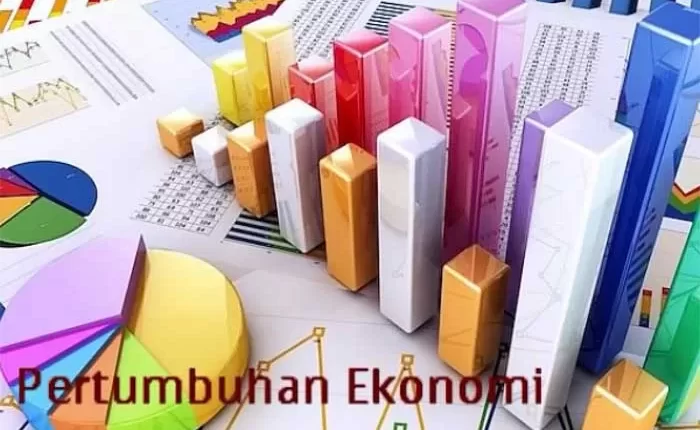Indonesia’s Economy Rises World Rankings for Ten Years Under President Jokowi’s Leadership
By: Nana Gunawan
Over the past decade, Indonesia has shown remarkable economic growth under the leadership of President Joko Widodo (Jokowi). The strategic policies implemented have had a positive impact on national economic stability and increased Indonesia’s competitiveness in the global market. Increasingly advanced infrastructure and a more conducive investment climate are the main keys to this success. This has led Indonesia to achieve a better position in the global economy, confirming Indonesia’s important role as one of the largest economies in Southeast Asia.
One indicator that illustrates this success is the growth of Indonesia’s Gross Domestic Product (GDP). Based on data from the World Bank, Indonesia’s GDP in 2014 was recorded at 890.81 billion US dollars, placing Indonesia in the 18th largest economy in the world. However, in 2023, Indonesia’s GDP will jump to 1.37 trillion US dollars, making Indonesia the 16th largest economy in the world. This growth is the result of policies that focus on infrastructure development, economic deregulation, and increased investment. Lingkaran Survei Indonesia analyst Denny JA said that the increase in Indonesia’s economic ranking shows that the policies implemented so far have been effective in encouraging sustainable economic growth.
According to Denny JA, infrastructure development projects such as toll roads, ports, airports, and railways have created a more efficient transportation network, allowing for faster distribution of goods and services and economic equality throughout Indonesia. In addition, economic deregulation carried out by the Government has also facilitated the entry of foreign investment, which in turn has increased the manufacturing and service sectors. This proves that President Jokowi’s economic policies have been able to build a strong foundation for long-term economic growth.
In the view of the World Bank’s Chief Economist for East Asia and the Pacific, Aaditya Mattoo, Indonesia’s economic growth is projected to continue. In 2024, the World Bank estimates that the Indonesian economy will grow by 5 percent, and in 2025 to 5.1 percent. This growth will be supported by improving infrastructure, stable domestic consumption, and increasing investment. Household consumption remains the main driver of the Indonesian economy, while investment from the private sector is also getting stronger thanks to policies that support the business climate.
In addition, Bank Indonesia Governor Perry Warjiyo emphasized that under President Jokowi’s leadership, inflation in Indonesia remains under control even though the world is facing global economic pressures. Consumer Price Index (CPI) inflation is projected to remain stable in 2024, with core inflation also maintained. Perry explained that this success is thanks to the synergy between Bank Indonesia and the Government in maintaining the stability of the rupiah exchange rate and monetary policies that are responsive to global challenges. In addition, food price controls carried out by the central and regional governments are also important factors in maintaining inflation stability in Indonesia.
Coordinating Minister for Economic Affairs Airlangga Hartarto added that Indonesia has been recognized by various international institutions as one of the countries with the most stable economy in the region. The World Bank, for example, praised Indonesia’s consistent economic growth of above 5 percent, as well as controlled inflation at 2.58 percent. Airlangga also emphasized that President Jokowi has succeeded in creating significant pro-people programs, such as village funds used to build infrastructure and reduce stunting in rural areas. With a fund allocation of IDR 71 trillion, this program not only supports economic development at the local level but also improves the welfare of people in various regions of Indonesia.
Various other policies implemented by the government, such as the National Economic Recovery Program (PEN), have also had a positive impact on economic sustainability. This policy includes six main programs, including health care, social protection, incentives for businesses, and support for MSMEs. This program not only maintains economic stability but also helps the community and businesses recover from the impact of the pandemic. Airlangga added that the support given to MSMEs, such as interest subsidies and credit payment delays, has helped this sector survive and grow, thus contributing greatly to national economic growth.
With these successes, the Indonesian economy is now on the right track to continue growing and contributing to the global economy. President Jokowi has laid a strong foundation, and the challenge ahead is how to maintain this momentum so that Indonesia continues to develop as one of the largest economies in the world. The government under the new leadership is expected to continue policies that have proven effective and strengthen the achievements that have been achieved over the past ten years.
Seeing this success, all elements of society, including the business world, are expected to continue to synergize with the government to maintain economic stability and growth. Support for government policies is very important in ensuring that the Indonesian economy remains strong in facing global challenges. With good synergy and cooperation, Indonesia has a great opportunity to continue to grow and become one of the world’s economic powers.
Therefore, it is time for all of us to support the sustainability of government programs that have proven successful. The community and the business world must unite to face the existing challenges and ensure that Indonesia continues to grow into a country with an increasingly advanced economy and high competitiveness in the international arena. Optimism and hard work are the keys to maintaining the sustainability of Indonesia’s economic development in the future.
)* The author is an Economic Observer at the Nusa Bangsa Institute.
